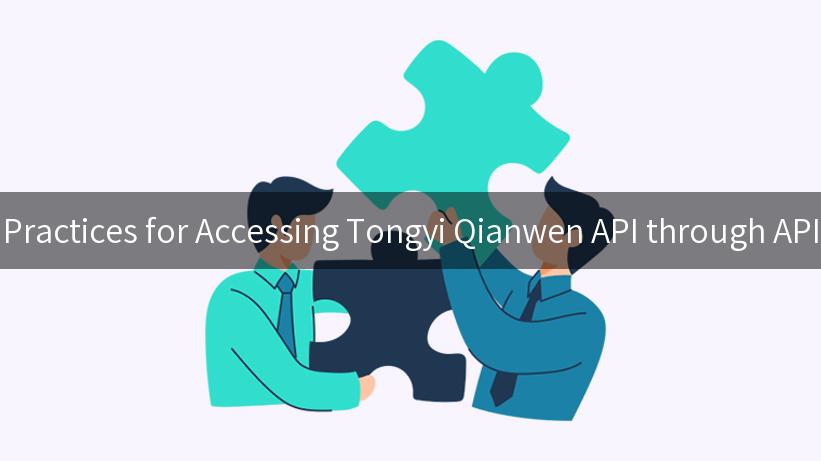
The rise of AI technologies and the subsequent demand for seamless API integrations have brought platforms like APIPark to the forefront. Accessing the Tongyi Qianwen API effectively means understanding the nuances of AI Gateway configurations, managing exceptions, and optimizing API calls. This article delves into the best practices for accessing Tongyi Qianwen API through APIPark, with a focus on keywords such as AI Gateway, nginx, api, and API Exception Alerts.
Understanding AI Gateway and Its Importance
An AI Gateway acts as a bridge between your application and the AI services you wish to utilize. It simplifies the integration process, ensuring that your requests are routed correctly and responses are handled efficiently. For Tongyi Qianwen API, employing an AI Gateway like APIPark ensures that these interactions are smooth and reliable.
Key Benefits of Using an AI Gateway
- Scalability: Easily manage increasing loads and user demands.
- Security: Protect sensitive data with robust authentication and encryption mechanisms.
- Efficiency: Optimize API call handling to reduce latency and improve response times.
Configuring Nginx for API Management
Nginx is widely used as a reverse proxy server and load balancer. Configuring it properly ensures that your API calls to Tongyi Qianwen through APIPark are handled efficiently.
Basic Nginx Configuration for APIPark
To start, ensure that your Nginx configuration file is set up to handle requests to the Tongyi Qianwen API efficiently.
server {
listen 80;
server_name api.yourdomain.com;
location / {
proxy_pass http://tongyi-qianwen.apipark.com;
proxy_set_header Host $host;
proxy_set_header X-Real-IP $remote_addr;
proxy_set_header X-Forwarded-For $proxy_add_x_forwarded_for;
}
}
This configuration sets up Nginx to forward requests to the Tongyi Qianwen API, ensuring that headers are passed correctly. This is crucial for maintaining proper session management and tracking.
Optimizing API Calls
Efficiency in API calls can significantly affect the performance of your application. Here are some best practices:
Reduce Redundant API Calls
- Cache Responses: Use caching mechanisms to store frequently accessed data.
- Batch Requests: When possible, bundle API calls to reduce the number of requests.
Error Handling and Retries
Implement robust error handling to manage API exceptions gracefully.
import requests
def fetch_data_from_api(endpoint):
try:
response = requests.get(endpoint)
response.raise_for_status()
return response.json()
except requests.exceptions.HTTPError as err:
print(f"HTTP error occurred: {err}")
except Exception as err:
print(f"An error occurred: {err}")
This Python snippet demonstrates how to handle exceptions when making API calls, ensuring that your application remains resilient in the face of errors.
{
APIPark is a high-performance AI gateway that allows you to securely access the most comprehensive LLM APIs globally on the APIPark platform, including OpenAI, Anthropic, Mistral, Llama2, Google Gemini, and more.Try APIPark now! 👇👇👇
}
Setting Up API Exception Alerts
Monitoring and alerting are critical for maintaining the health of your API integrations. Setting up alerts for API exceptions can help you quickly address issues.
Best Practices for API Exception Alerts
- Real-time Monitoring: Use tools like Prometheus or Grafana to monitor API performance metrics.
- Log Analysis: Implement structured logging to analyze API usage patterns and exceptions.
- Automated Alerts: Configure automated alerts to notify your team of critical issues as they arise.
Example of Automated Alert Setup
Here’s a simple example using a tool like Grafana for setting up alerts:
- Define Metrics: Choose the metrics you want to monitor, such as request latency or error rates.
- Set Thresholds: Establish thresholds for these metrics to trigger alerts.
- Configure Notifications: Set up channels (email, Slack, etc.) to receive alerts.
By proactively monitoring your API, you can ensure a more stable and reliable service.
Conclusion
Accessing the Tongyi Qianwen API through APIPark requires a strategic approach that involves efficient configurations, robust error handling, and proactive monitoring. By leveraging an AI Gateway, optimizing Nginx settings, and setting up comprehensive API exception alerts, you can enhance the performance and reliability of your API integrations.
Summary Table of Best Practices
| Best Practice |
Description |
| Use AI Gateway |
Simplifies integration and enhances security and efficiency |
| Configure Nginx |
Proper setup ensures efficient request handling |
| Optimize API Calls |
Reduces latency and improves performance |
| Implement Error Handling |
Ensures application resilience during API failures |
| Set Up Alerts |
Monitors API health and notifies of critical issues |
By adhering to these best practices, developers can effectively integrate the Tongyi Qianwen API and maximize the potential of their applications in leveraging AI technologies.